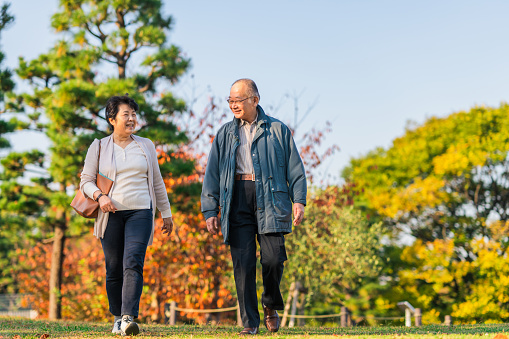Kapanlagi.com - Japanese has become a popular foreign language in Indonesia, especially among young people who love comics and anime. Starting from the love of anime and comics, many young people are interested in learning Japanese. As a result, some words in Japanese are now becoming popular. Senpai is one of them. So, what is the real meaning of senpai?
In Japanese, senpai is a fairly common word. This word is usually used to accompany someone's name. In everyday life, the word senpai can be found in anime or comic dialogues. It is not surprising that the meaning of senpai is currently only known by certain groups. Besides senpai, there is also the word sensei that sounds similar so it is often assumed to have the same meaning. Is that true?
For those of you who are curious about the meaning of senpai, just read the following review which has been summarized from various sources.
1. Meaning of Senpai

(credit: unsplash)
In Japanese, senpai belongs to the class of personal nouns. Senpai refers to a 'respected person'. The meaning of senpai can be used not only for individuals but also for a group of people. As previously mentioned, in the Japanese language, the word senpai is included in the mention of someone's name.
However, it is not because of age, in fact, in Japanese, the meaning of senpai is a term for a senior. Yes, the use of the word senpai refers more to the element of seniority. Senpai is more used based on someone's ability. Therefore, in addition to senior, the word senpai can also be used to refer to a mentor, coach, or teacher.
Even the nickname senpai can also be given to fellow students. With the note that the student called senpai does have excellent skills. Therefore, the title of sensei is often given to students who become assistant coaches or assistant lecturers.
2. Examples of the Use of Senpai in Sentences
The word senpai is quite often used in daily Japanese conversations. The use of the word senpai in daily life shows the character of Japanese society that highly respects others, especially because of their abilities.
Therefore, the word senpai is quite often used in places and situations that are strongly associated with seniority. Such as in schools, workplaces, training places, and so on. Therefore, to better understand the meaning of senpai, you need to know examples of the use of the word senpai in Japanese sentences.
Here are some examples of the use of the meaning of senpai in Japanese sentences.
1. Kare wa watashi no gakkou no senpai deshi ta (He was my senior at school)
2. Kare wa ima kaisha no senpai desu (He is now my senior at the company)
3. Mata ashi-ta ne, Miyazawa Senpai (See you tomorrow, (senior) Miyazawa)
4. Konnichiwa, Haruki Senpai (Good afternoon, (senior) Haruki)
3. Difference Between Senpai and Sensei

(credit: unsplash)
Besides the word senpai, we may also often come across the word sensei in comic or anime dialogues. Because they have similar spelling and pronunciation, many people assume that the two words are the same and use them randomly. However, the meaning of senpai and sensei is clearly different, so their usage should be appropriate.
As previously explained, senpai is used to refer to someone who is more skilled or senior in a particular field. Like senpai, sensei is actually used to accompany someone's name. The difference is that if senpai is based on seniority, sensei is used more based on age and life experience.
Therefore, sensei is usually used to address someone who is older in general. Or sensei can also be used to call an experienced person like a teacher.
4. Other Popular Japanese Vocabulary

(credit: unsplash)
Learning Japanese is indeed a fun thing, especially if you are a fan of anime and comics. Besides senpai, there are still many other Japanese vocabulary that are now popular thanks to anime and comics. Here are some of them.
1) Ohayougozaimasu (Good morning)
2) Konnichiwa (Good afternoon)
3) Konbanwa (Good evening)
4) Oyasuminasai (Good night or sleep well)
5) Otanjyoubi omedetou gozaimasu (Happy birthday)
6) Arigatou (Thank you)
7) Sumimasen (Excuse me)
8) Gomennasai (I'm sorry)
9) Yoroshiku (Please help me)
10) Ittekimasu (I'm leaving)
11) Sayounara (Goodbye)
12) Tadaima (I'm home)
13) Kiotsuketene (Be careful on the road)
14) Nani wo shiteimasuka? (What are you doing?)
15) Itadakimasu (Bon appétit)
16) Ogenki desu ka? (How are you?)
17) O-tesuu kakete sumimasen (Sorry to have troubled you)
18) Mou ichido itte kudasai (Please say it again)
19) Mata aimashou (Let's meet again)
20) O-me ni kakarete ureshii desu (Nice to meet you)
That is the review and explanation of the meaning of senpai that we may have often encountered in anime or comics. Hopefully, it is useful, can increase knowledge, and answer your curiosity all this time.
(kpl/gen/psp)
Disclaimer: This translation from Bahasa Indonesia to English has been generated by Artificial Intelligence.















